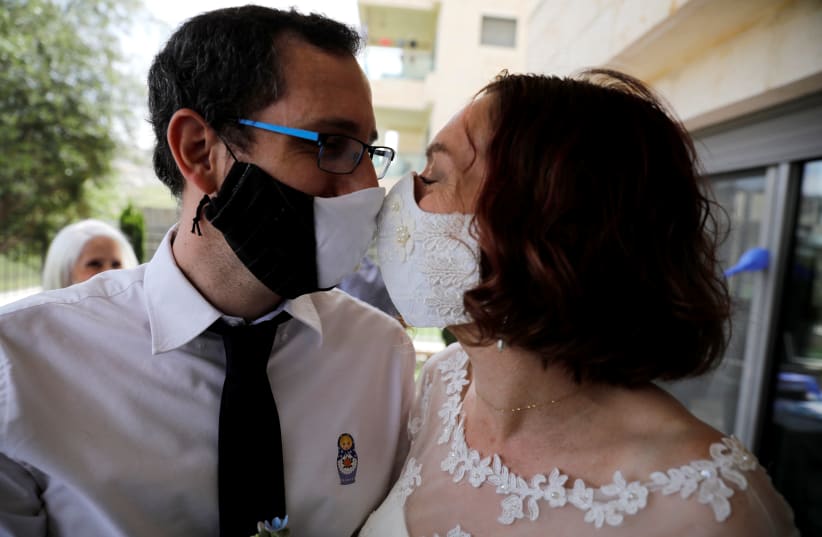Various studies have found that the ability to remember names, faces and stories we heard from different people was significantly impaired during the three previous lockdowns. (We're not talking about brain fog, which is often a symptom of long COVID.)
How soon will we be able to restore our memory loss and get our memory function to its former state? And how might this affect us in the future?
The possibility of another closure due to the rise in coronavirus cases hovers over our heads, and while there has been a lot of discussion about the negative effects lockdown had on the economy and the state of loneliness that many people were forced into, recently published data points to significant harm in another area: personal memory, especially social memory.
Our social abilities are based on memory function: recognizing faces, remembering people's names, implicit memory and memory of previous interactions. These elements directly affect our ability to build relationships with the people around us and enjoy a normal, healthy social life.
"Our brain, which is used to storing huge amounts of information, works constantly to create new connections and strengthen existing ones. In situations of closure and isolation, no social events are held such as meetings, conferences and friendly gatherings, where we can practice social memory. The existing neural connections in the brain are weakened and fewer new connections are formed which directly affects memory function,” explained Itai Aniel, an expert in developing strategies for improving memory.
A study conducted at the University of Virginia, Charlottesville, centralizes data from several studies that examined animals with a human-like brain structure and showed that even temporary isolation when these animals mature impairs social memory, as well as familiar facial recognition, and working memory - the type of memory that allows us to remember a recipe when we’re cooking.
Isolated humans tend to forget just as much. '
Researchers that previously went on mission for many months in Antarctica and were tested upon their return showed significant damage to the hippocampus, the central structure in the brain responsible for memory function and new memories, after 14 months of social isolation.
"Similarly, adults with small social circles are more likely to develop memory loss and cognitive decline later in life," Aniel states.
Another study found that marmoset monkeys that had been isolated had difficulty when they returned to social situations, but adapted quickly and even spent more time with new friends. "This can be attributed to the flexibility of the brain and that it knows how to adapt to new and changing situations, along with the ability to connect through memory new situations to a similar, past situation." adds Aniel.
There are solutions!
So how can one maintain social memory during isolation or lockdown? Aniel has some useful tips:
1 - Create interesting social experiences
Our brain really absorbs and remembers interesting social experiences that we experienced. The proof of this is that we remember in detail social events that happened decades ago and because they were new and exciting for us. So, it’s crucial that we initiate and create events that allow us to interact socially, whether online encounters or limited in-person events. This way, we can continue to train our minds to remember names of people, faces and interesting topics related to our friends.
It’s important to note that whenever we initiate new social situations and strengthen existing ones, we simultaneously create new connections between nerve cells in the brain, called synapses, and strengthen existing connections in it. Also, the more dynamic the social experience is, the longer we’ll remember it, so we must initiate and create compelling encounters.
2 - Focus your brain and set goals
Set clear goals for your brain according to what you want to remember from each social gathering, then practice and set goals for improvement. For example, remember the names of everyone at the party, where each one lives and their profession. When you decide to remember these facts, even unimportant ones, to train your memory, this will make your brain cooperate and enable it to focus on details, listen to facts while with friends and absorb them better. It’s recommended to perform intermediate exercises during the session and if necessary repeat the items again to make sure you remember them and at the end of an event summarize crucial details according to defined goals of a memory test. Remember-keep practicing!
3 - Train social memory
There are many ways to train memory when meeting friends that of course can be adapted to existing limitations, like learning new topics, thinking and memory games, going to lectures and participating in hobbies. This way, one can effectively train social memory and also enjoy what he/she’s doing. That helps with memory loss.
4 - Have interesting conversations
The amount of information we receive and retrieve from memory during conversations is significantly greater than we normally estimate.
In general, interesting conversations are a great way to train the mind to improve memory in general, and social memory in particular.
In conversations we also learn about the person we are talking to while strengthening our relationship to him/her and we learn about ourselves when we choose and recall from memory details relevant to the conversation, the right words and everything the words describe such as pictures, events, names, places, times, sounds, smells etc. Also, while talking we practice and strengthen the memory through a process of re-consolidation (re-crystallization) that it goes through incessantly. In this process, every time we retrieve information from memory we simultaneously review details and thus strengthen our grip on memory.
